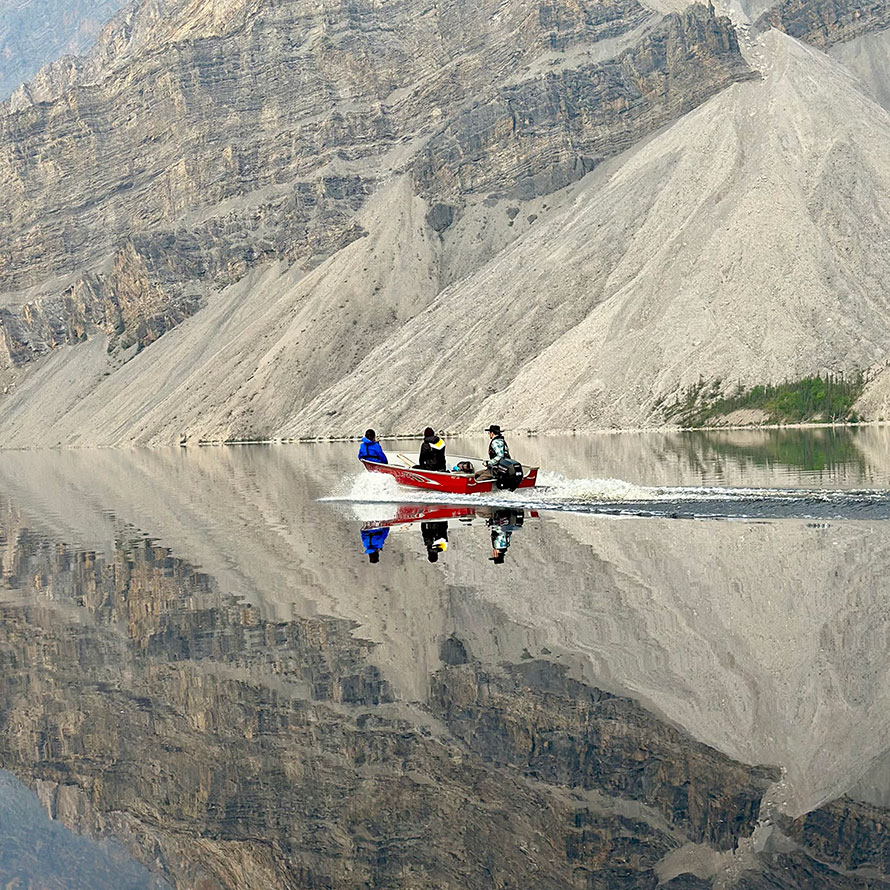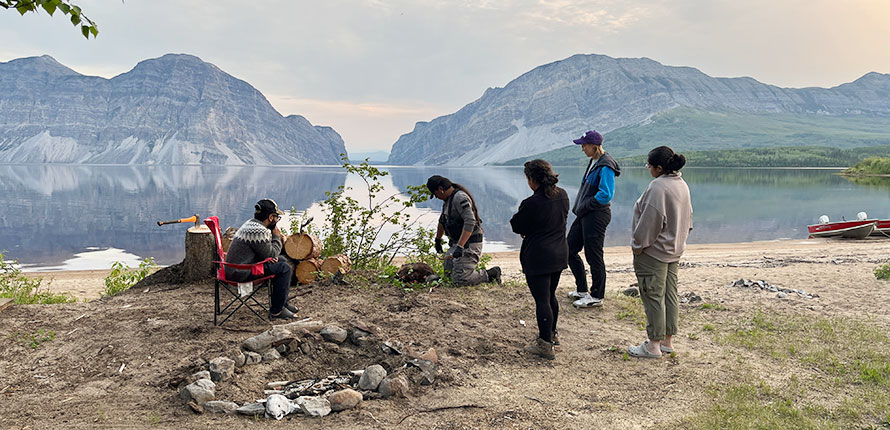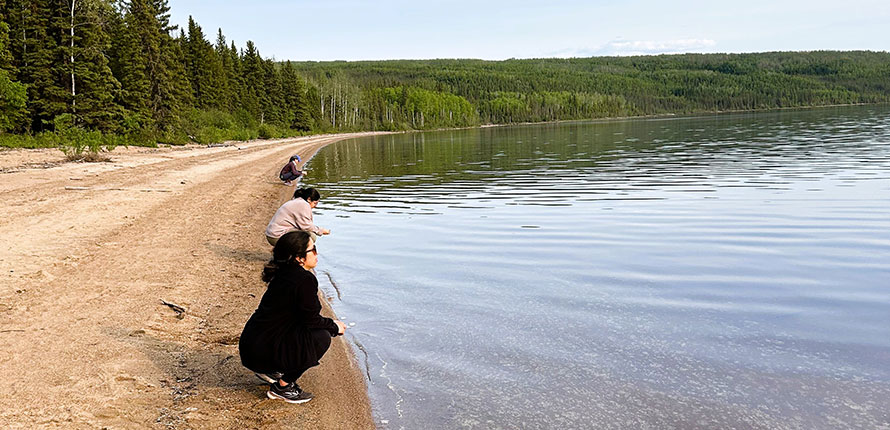We use cookies on this site to enhance your experience.
By selecting “Accept” and continuing to use this website, you consent to the use of cookies.
Search for academic programs, residence, tours and events and more.
Oct. 15, 2025
Print | PDFWhile looking out across the pristine beauty of Little Doctor Lake during her first visit to the Northwest Territories, Kate Cain was moved by the words of Ojibwe Canadian author Richard Wagamese. In his book One Drum: Stories and Ceremonies for a Planet, he wrote that “you change the world” through “the smallest circles first.” The actions of individuals can have significant ripple effects on the systems they are a part of.

The spirit of “smallest circles first” informed Cain’s participation in an on-the-land reconciliation camp, a pilot initiative launched by Wilfrid Laurier University in June 2025. Co-led by Professor Heidi Swanson and her Indigenous partners, the camp brought a small group of Laurier administrators and students together on Little Doctor Lake to learn how they could contribute to decolonization through their work. Over many years of collaborative research in the North, Swanson observed that the most meaningful reflection happens on the land, building relationships while immersed in nature.
Cain, a research facilitator in Laurier’s Office of Research Services, welcomed the opportunity to identify her colonial blind spots. As an influential contributor to the university’s research environment, she hoped to address policies and practices that contribute to inequity.

Cain and her colleagues arrived at Little Doctor Lake on float planes, welcomed by Swanson and her research associates Kirsten Nikel and William Alger. Each morning brought new activities and new learning, from collecting aquatic bugs with Swanson to reading books such as 21 Things You May Not Know About the Indian Act by Bob Joseph. Alger served as an Indigenous Guardian, ensuring everyone was safe in the remote environment and offering stories and perspectives from his local lived experience.
Private contemplation and group discussion challenged common assumptions, allowing Cain and her group members to reflect on their identities, values and biases. They shared their gratitude by releasing small bundles of tobacco into the water, a traditional practice of thanks.

Cain found the experience to be enlightening, uncovering tangible changes she could champion as research facilitator, a position supported in part by the Government of Canada’s Research Support Fund. Facilitators help faculty members identify funding opportunities and support the development of successful research grants.
“For example, some of the forms and templates used for grants and contract agreements can create unnecessary barriers for applicants, excluding Indigenous processes and partners,” says Cain. “Spending time in the North made me re-examine the rigidity of research finance rules in the context of remote Indigenous communities and question ethics guidelines rooted in colonial traditions.”
On a personal level, Cain learned to acknowledge what she doesn’t know and embrace humility, accepting uncomfortable truths and that Western science is not the only form of knowledge. Being on the land revealed how disconnected she was from it, motivating Cain to slow down and take the time to learn about and respect her surroundings.
“I am embracing a principle Heidi and William taught us: feel first, think differently, then act.”